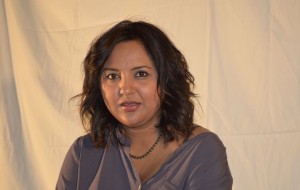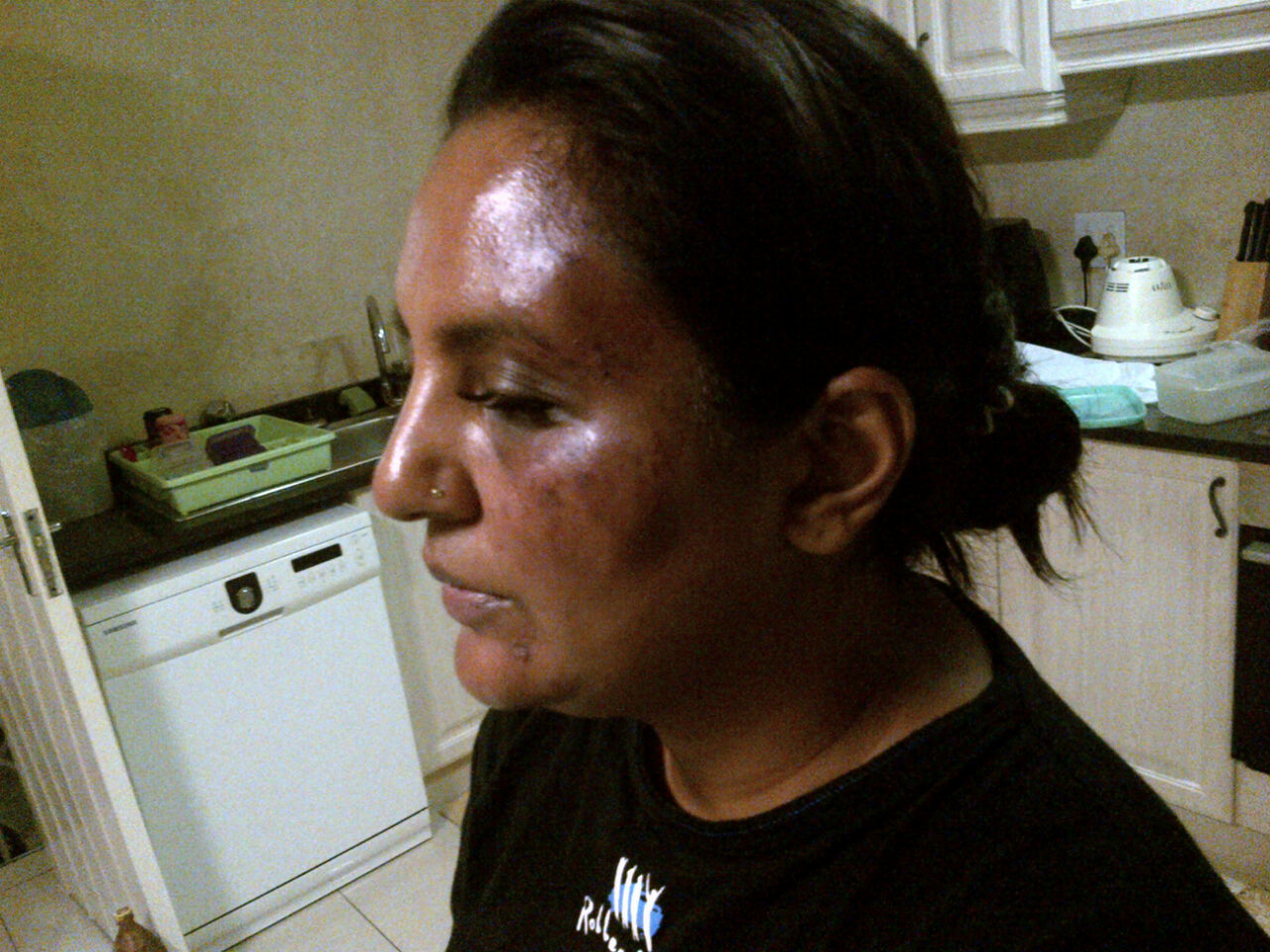South African author Zainub Priya Dala was driving through the city of Durban last Wednesday, when three men tried to push her off the road.
When they finally managed to get her to stop on a busy interchange, the men drew a knife to her neck, and threw a series of obscenities at her, before smashing her face with a brick. They took nothing, left her bleeding at the side of the road, and drove off in their vehicle.
Dala says the three men were not wearing masks. They were South African Indian males in their thirties. She can’t be sure, but they were almost certainly Muslim. She says they attacked her for praising Salman Rushdie at a writing workshop the day before.
“They called me ‘Rushdie’s bitch’,†Dala said.
As a guest at the recently concluded Time of the Writer literature festival in the city, Dala had travelled to Chatsworth, 30km outside Durban, as part of the festival’s outreach programme between authors and local communities. It was at a community centre where she casually mentioned admiring Rushdie’s work.
“I was at a workshop with learners when I was asked which writers I admired,†Dala told The Daily Vox. “When I said Arundhati Roy and then Salman Rushdie, some learners and teachers got up and walked out the venue.â€
Later that afternoon and evening, Dala received SMSes from strangers asking her, as a Muslim woman, to repent for praising the author of The Satanic Verses. Rushdie’s 1988 novel drew the ire of many Muslims across the globe when it was published, owing to his depiction of the Prophet Mohammed. In 1989 Iran’s Ayotullah Khomeni issuing a fatwa calling for Rushdie’s death .
Dala’s first book “About Meera†was supposed to launch on South Africa’s Human Rights Day on Saturday, but the launch had to be postponed after the incident, which left her with a broken cheekbone and soft-tissue damage.
While the attack has been condemned by all segments of South African society, it has also set off some soul-searching among South African’s Muslim community, which has been left perplexed by the nature of the crime.
Dala spoke to The Daily Vox about the attack and her reaction to it. Listen to the Q&A here or read on for an abridged version of the interview.
The Daily Vox: You were attacked because you mentioned Salman Rushdie. How do you understand the rage you experienced as a result of mentioning his name?
Zainub Priya Dala: Rage and violence is never an answer. It is certainly not something that anyone should resort to, to anything, least of all, a writer’s work.  I have understood it on two levels. I am trying to process it on a personal level by trying to heal, both mentally and physically. On a macro level, I am trying to understand it in a way that does not makes me look at the entire community as people who resort to violence. I can understand fully that it’s just a small, possibly ignorant group of people that have perpetrated this crime.
TDV: You say that you don’t want to typecast the entire South African Muslim community because of the behavior of a few. How then do you suggest that this conversation takes place without it becoming an excuse to label and hate?
ZPD: I am very aware that Islamaphobia is very much in the news and in the mainstream media. I think that such an incident that happened to me, as tragic as it is, is something that does open up a dialogue, as to the views of various segments of the Muslim community. By this incident, what should be sent out to the world at large is that this is a small section and it is a very small section that is not condoned by the entire, large Muslim community, who are strongly opposed to what happened. I hope that this dialogue that we open; we can conscientise the rest of the world, about the peace of the religion and about the peace of the people, largely.
TDV: Â Would you say that this conversation is actually taking place?
ZPD: One would hope so. I have not encountered any feedback from the community. I do believe that the dialogue has opened, and the conversation is taking place. On the other hand, I might add, is that it is taking place in a very secretive platform. Many people are still afraid. No matter how honourable their views are, they are still afraid to come out and state them. There are a few great souls that are doing so and, by their example, I am hoping that the large community follows by example. One must think about the fact that it is largely the academics and the leaders who are talking. We really need the people on the ground to talk. They are the ones that count the most. Because they are ones that sometimes misconstrue and take the wrong messages. It starts with the clerics and the academics and the leaders. We have to find a way to get it to filter down.

TDV: Rushdie’s novel, The Satanic Verses elicited a harsh response from many Muslims around the world. But did you expect this kind of reaction to merely mentioning his name?
ZPD: When the book came out, and the fatwa issued by the [Iran’s Supreme leader] Ayotullah Khomeni, I was very young. When I became older, I read more and wanted to know more. I would have that thought with so many years gone by and other writers who have come out with controversial subjects as well, that such an issue wouldn’t be as large as it still is today after so many years. Perhaps it was naivety on my part to think that such an issue would not be reacted to so strongly. I do now find that it is still foremost in a lot of people’s minds. I didn’t expect it, at all.
TDV:  The book came out a long time ago. If the younger generations are leaving workshops that merely mention of his name, aren’t we going down a very dangerous path?
ZPD: A large part of the community is not aware of the contents of the book and why it is so controversial. They just hear [the name] Salman Rushdie and that sets them off. I think that awareness and possibly dialogue with the community, about what is so inflammatory about this, must be brought out into the open, so people can be circumspect about it, instead of following like sheep: “We hate Rushdie and that’s finalâ€. Also, we have to acknowledge that Mr Rushdie has a large body of very beautiful work. The Satanic Verses is not the only book that he has published. That needs to be pointed out to the community as well: that he is a writer and he has a large body of work.
TDV:  Will you stop writing, speaking about the books that you love, and the writers that you admire?
ZPD: Everyone that knows me knows that I am someone who does not back down from speaking about issues. My book itself [About Meera] is very much about secrets and the unspeakable. Initially when the incident happened, I did feel that maybe it would be best if I hid in a little hole and not say anything more. But as I am feeling a lot strong, I know that I won’t be deterred from writing further books and from commenting about other wonderful writers that I admire. I also think that it’s my responsibility not to back down from words that I uttered myself. That would be cowardly and it is not something I prefer to do. I will continue … and hopefully not taking a brick to the face.
Editors’ Note: To show support for ZP Dala, sign the letter penned by a group of concerned citizens. You can read an excerpt from About Meera here.Â









